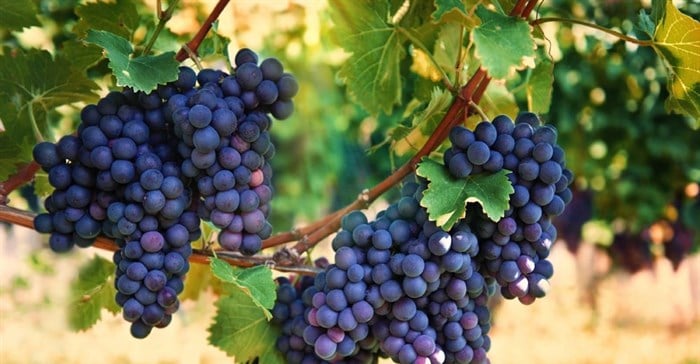Message in a bottle: the wine industry gives farmers a taste of what to expect from climate change

Those concerns aside, viticulture delivers important messages about a changing climate, for several reasons. High-quality wine is extraordinarily sensitive to the vagaries of the weather. Grape-growers and wine producers (vignerons) are observant and responsive to any impacts on their product, especially when it comes to signs that a particular grape variety or vineyard is not performing.
One example is in South Australia, where high-quality wine producers are using their expertise to adapt as the state's climatic conditions change.
Change is in the wind
Over the past decade, my colleagues and I have studied changes in the McLaren Vale wine region, south of Adelaide. This region's wines regularly win international awards, particularly for shiraz that dominates varietal selection. Like other farmers, vignerons here are noticing more extreme heat and humid weather in summer, and less rain, stronger storms and milder temperatures in winter.
But unlike some other crops, viticulture has an enormous range of adaptation options and the capacity to apply them - and in the McLaren Vale change is underway.
The region's growers have banded together to organise a recycled water scheme to secure their irrigation resources. This has largely eliminated the risk of groundwater depletion, for the near future at least.
They have also worked together with governments to strengthen planning policy and protect rural land from the expansion of Adelaide's southern suburbs. As a result, the rural land here is as secure as anywhere similarly close to a major Australian city. This is crucial because the McLaren Vale is a unique patch of land with complex geology, set between the southern Mount Lofty Ranges and the moderating climatic influences of the St Vincent Gulf.
Growers have strong networks, from the formal McLaren Vale Grape, Wine and Tourism Association through to the Willunga farmers' market and the Friends of Willunga Basin. The region's wine is defined by a globally recognised Geographical Indication mark, and that is being strengthened with the mapping of the region's unique soils and wine consumers' increasing knowledge of the terroir of the McLaren Vale.
The sour taste of Australian climate policy
In effect, the whole socio-ecological system of the McLaren Vale is being made more resilient. Even before individual producers make choices about what grape varieties to use, or about techniques such as mulching, pruning, harvesting, and blending, they know they have strengthened their production system enormously by working together to secure their natural resources. Vignerons have also worked together to market their products in ways that reflect the uniqueness of their place.
Yes, growers are also looking to the warmer southern parts of Europe for varieties that might better fit their future climate, and have experimented with them on their fields and in their wineries.
Yes, they are developing new ways of farming using methods that conserve water and maximise the quality of the soils. And yes, they are spreading the risk by diversifying into other regions and industries, especially tourism.
But there is a bigger message than risks to wine quality that needs to get through to the people making decisions about our ecological futures. Wine quality is only an indicator of future risk and we are only in the early stages of a massive ecological shift that will require a different type of thinking about our environment.
While some of the most resourced, educated, informed and organised farmers in Australia are adjusting successfully in the short term, they are also looking to the future and noting that adaptation will meet new thresholds in the longer term.
Everyone needs to work to minimise the rate of climate change. We can learn from early adapters such as the vignerons of the McLaren Vale, but it is not going to be easy to adapt, because bit by bit climate change will change everything. The heatwaves that are burning the grapes of the McLaren Vale will get worse and make summers less comfortable for everyone. Dry summers will add to the bushfire risk on the periphery of our cities, just as they limit the complexity of flavours in our wines. The storms that strip leaves or cause mildew outbreaks in the McLaren Vale will also damage houses across southern Australia.
Yet at the moment, Australia is acting like a pariah state on climate change - it is up there with the worst performers on per capita greenhouse emissions and has a history of using accounting tricks to make its efforts seem more palatable.
It is not good enough to aim low on this issue, because we are going to lose things we value - not just our favourite wines, but the very security of the places where we live and grow our food. That is the real message in the bottle.![]()
Source: The Conversation Africa

The Conversation Africa is an independent source of news and views from the academic and research community. Its aim is to promote better understanding of current affairs and complex issues, and allow for a better quality of public discourse and conversation.
Go to: https://theconversation.com/africa



